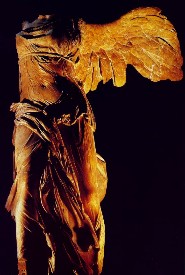
NOTES ON THE SURRATIONAL-POETIC COMPLEX
THE END/BEGINNING - “This end, the end of the entire old order, of being and knowledge, of principles and reason, has been brought about in the sepulcher’s stillness that followed the cry ‘It is finished.’ From His cross, God saw this world ending; from His tomb a new world has begun -- ‘Behold, I make all things new’ (Rev. 21:5).” --John Panteleimon Manoussakis, God After Metaphysics: A Theological Aesthetic (Bloomington: Indiana University Press, 2007), p. 157
SUBLIME POTENTIAL (A SERIAL ESSAY): PATH 1 - Sublime Potential / Appropriating Pascal / Prolegomena / >Schiller: Notes on the Sublime; PATH 2 - Linguistic Dust / The Coming Coming / Sublime Aesthetics / Sublime Scare Tactics / Red, Green, Blue


“The [S]ublime is of a dual sort. We refer it to either our power of apprehension and are defeated in the attempt to form an image of its concept; or we refer it to our vital power and view it as a power against which our own dwindles to nothing. But even if, in the first case or the second, it is the occasion of a painful awareness of our limitations, still we do not run away from it, but rather are drawn to it by an irresistible force. Would this be even possible if the limits of our imagination were at the same time the limits of our power of comprehension? Would we so gladly accede to the remainder of the overwhelming power of natural forces if we did not possess something else in reserve which need not fall prey to those forces? We delight in the sensuously infinite because we are able to think what the senses can no longer apprehend and the understanding can no longer comprehend. We are ravished by the terrifying because we are able to will that which our sensuous impulses are appalled by, and can reject what they desire. We gladly permit the imagination to meet its master in the realm of appearances because ultimately it is only a sensuous faculty that triumphs over other sensuous faculties; but nature in her entire boundlessness cannot impinge upon the absolute greatness within ourselves. We gladly subordinate our well-being and our existence to physical necessity, for we are reminded thereby that it cannot command our principles. Man is in its hands, but man’s will is in his own hands.” (pp. 198-199)
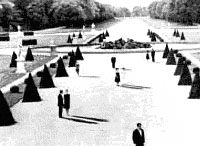 “Who does not prefer to tarry among the spiritual disorder of a natural landscape rather than in the spiritless regularity of a French garden?”(p. 204)
“Who does not prefer to tarry among the spiritual disorder of a natural landscape rather than in the spiritless regularity of a French garden?”(p. 204)“[W]orld history appears to me a sublime object. The world, as an historical subject matter, is basically nothing but the conflict of natural forces among themselves and with man’s freedom; history reports to us the outcome of this battle. As history has thus far developed, it has much greater deeds to recount about nature (in which all human emotions must be included) than about independent reason which has asserted its power only in a few exceptions to the natural law […] Should one approach history with great expectations of illumination and knowledge -- how very disappointed one is! All well-intentioned attempts of philosophy to reconcile what the moral world demands with what it actually performs are contradicted by the testimony of experience, and, as amiably as nature in her organic realm is guided, or appears to be guided, by the regulative principles of judgement, in the realm of freedom she as impetuously tears off the reins by which the speculative spirit would gladly lead her.” (pp. 206-207)
--Friedrich Schiller, On the Sublime, trans. Julius Elias (New York: Ungar, 1966)
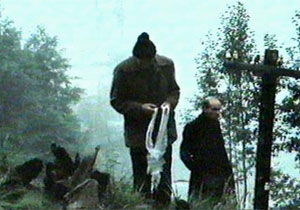 THE YOUNG BRAHMANIANS - "It was, then, le génie français’ fault. And yet all those who came afterwards (after the slow-motion avalanche of spiraling, delicate, velvet words inscribed in Time Itself by Time Itself) were somehow complicit -- that is to say, those poor souls obsessed with the two infinities and the sublime Je ne sais quoi suspended in the elective, echoing void of the imagination were somehow collectively responsible (if that was even possible) for the splendid fixation that developed around the conceptual sign of Hypsos (the Sublime), for the repercussions of having answered its call, and for sketching in delicate arabesques all that it held within the slippery confines of its paratactical contours -- the shape of things to come, after all, or things that come and things that call." The Young Brahmanians (Rizoma)
THE YOUNG BRAHMANIANS - "It was, then, le génie français’ fault. And yet all those who came afterwards (after the slow-motion avalanche of spiraling, delicate, velvet words inscribed in Time Itself by Time Itself) were somehow complicit -- that is to say, those poor souls obsessed with the two infinities and the sublime Je ne sais quoi suspended in the elective, echoing void of the imagination were somehow collectively responsible (if that was even possible) for the splendid fixation that developed around the conceptual sign of Hypsos (the Sublime), for the repercussions of having answered its call, and for sketching in delicate arabesques all that it held within the slippery confines of its paratactical contours -- the shape of things to come, after all, or things that come and things that call." The Young Brahmanians (Rizoma)PROVISIONAL BIBLIOGRAPHY / POSTSCRIPTS
"The fashion of the Sublime has the supplementary privilege of being extremely old [...]" --Jean-Luc Nancy, "The Sublime Offering" [1990], A Finite Thinking, trans. Jeffrey Libbrett (Stanford, CA: Stanford University Press, 2003)
"The judgement 'this is beautiful' is only one type of aesthetic judgement. We must examine the other type; 'this is sublime'. In the Sublime, imagination surrenders itself to an activity quite distinct from that of formal reflection. The feeling of the sublime is experienced when faced with the formless or the deformed (immensity or power). It is as if imagination were confronted with its own limit, forced to strain to its utmost, experiencing a violence which stretches it to the extremity of its power." --Gilles Deleuze, Kant's Critical Philosophy: The Doctrine of the Faculties, trans. Hugh Tomlinson (Minneapolis: University of Minnesota Press, 1984)
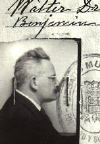 Andrew Ashfield and Peter de Bolla (eds.), The Sublime: A Reader in British Eighteenth-Century Aesthetic Theory (Cambridge: Cambridge University Press, 1996)
Andrew Ashfield and Peter de Bolla (eds.), The Sublime: A Reader in British Eighteenth-Century Aesthetic Theory (Cambridge: Cambridge University Press, 1996)Harold Bloom, Poetry and Repression: Revisionism from Blake to Stevens (New Haven: Yale University Press, 1976)
Jean-Francois Courtine, Michel Deguy et alia, Of the Sublime: Presence in Question, trans. Jeffrey Librett (Albany: SUNY, 1993)
Stuart A. Ende, Keats and the Sublime (New Haven: Yale University Press, 1976)
Emmanuel Lévinas, God, Death, and Time (Stanford, CA: Stanford University Press, 2000)
Longinus, On the Sublime, edited by D.A. Russell (Oxford: Clarendon Press, 1964)
Louis Marin, Sublime Poussin, trans. Catherine Porter (Stanford, CA: Stanford University Press, 1999)
Gaston Bachelard, The Psychoanalysis of Fire [1938], trans. Alan C. M. Ross (Boston: Beacon Press, 1964)
Jean-Francois Lyotard, Lessons on the Analytic of the Sublime, trans. Elizabeth Rottenberg (Stanford, CA: Stanford University Press, 1994)
Kirk Pillow, Sublime Understanding: Aesthetic Reflection in Kant and Hegel (Cambridge, MA: MIT Press, 2000)
James Kirwan, Sublimity: The Non-Rational and the Rational in the History of Aesthetics (London: Routledge, 2005)
Theodor W. Adorno (1903-1969), Aesthetic Theory, trans. Robert Hullot-Kentor (Minneapolis: University of Minnesota Press, 1996) - "Adorno revisits such concepts as the sublime, the ugly, and the beautiful, demonstrating that concepts such as these are reservoirs of human experience. These experiences ultimately underlie aesthetics, for in Adorno's formulation 'art is the sedimented history of human misery.'" (UMP) - Cloth, 448 pages, ISBN 0-816-61799-6 (Paper, ISBN 0-816-61800-3) / Part and parcel of the Theory and History of Literature Series (UMP) / More Adorno
Regarding Georges Bataille, see Books / Texts (Yellow Pages) ...
 "Once again -- I walk on, once again, down these corridors, through these halls, these galleries, in this structure -- of another century, this enormous, luxurious, baroque, lugubrious hotel -- where corridors succeed endless corridors -- silent deserted corridors ..." --Alain Robbe-Grillet, Last Year at Marienbad, trans. Richard Howard (New York: Grove Press, 1962), p. 18
"Once again -- I walk on, once again, down these corridors, through these halls, these galleries, in this structure -- of another century, this enormous, luxurious, baroque, lugubrious hotel -- where corridors succeed endless corridors -- silent deserted corridors ..." --Alain Robbe-Grillet, Last Year at Marienbad, trans. Richard Howard (New York: Grove Press, 1962), p. 18DREAM (10/10/04) - A child (again), with sled ... A bus has stopped on a snowy pass in the mountains ... Three men are smoking by the roadside ... There is a sign ahead saying "Road Closed" ... I say, to no one (to my Self), “That’s old news ...” / Echoes (Autumn 2004) ...
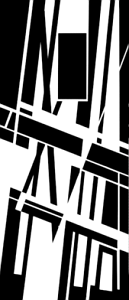 'THE THING': FROM KANT TO MARION
'THE THING': FROM KANT TO MARIONTRANSCENDENTAL APPERCEPTION & ITS OTHER - “The order and regularity in the appearances, which we entitle nature, we ourselves introduce. We could never find them in appearances, had we not ourselves, or the nature of our mind, originally set them there.” Immanuel Kant, Kritik der reinen Vernunft [Critique of Pure Reason], First edition, 1781, p. 125; cited in Christopher Janaway, Self and World in Schopenhauer’s Philosophy (Oxford: Clarendon Press, 1989), p. 42; trans. Norman Kemp Smith from Immanuel Kant’s Critique of Pure Reason (London: Macmillan, 1929)
“The ‘I think’ must be able to accompany all my representations; for otherwise something would be represented in me which could not be thought at all, which amounts to the representation’s being either impossible, or at least nothing for me.” Immanuel Kant, Kritik der reinen Vernunft [Critique of Pure Reason], Second edition, 1787, pp. 131-132; cited in ibid.
Kant’s "Transcendental Aesthetic", Kritik der reinen Vernunft (1781, 1787)
SOME-THING ELSE - “The unity of that will […] which lies beyond the phenomenon, and in which we have recognised the inner nature of the phenomenal world, is a metaphysical unity, and consequently transcends the knowledge of it, i.e., does not depend upon the functions of our intellect, and therefore can not really be comprehended by it. Hence arises that it opens to the consideration an abyss so profound that it admits of no thoroughly clear and systematically connected insight, but grants us only isolated glances, which enable us to recognise this unity in this and that relation of things, now in the subjective, now in the objective sphere, whereby, however, new problems are again raised […]” Arthur Schopenhauer, The World as Will and Representation, Vol. III, 7th edition, trans. R. B. Haldane, J. Kemp (London: Kegan Paul, 1900), p. 71
THE WAY OUT? - “Philosophy’s theme must restrict itself to the world: pronouncing in all aspects what the world is, what it is in its innermost nature, is all that it can honestly achieve. Now it is keeping with this that my teaching, on reaching its summit, takes on a negative character, and so ends with a negation. For here it can speak only of that which is denied, given up … Here is precisely the point where the mystic proceeds positively, and from here on nothing remains but mysticism.” Arthur Schopenhauer, The World as Will and Representation, Vol. II, in Zürcher Ausgabe: Werkke in zehn Bänden, Vol. I, edited by Arthur Hübscher (Zürich: Diogenes-Taschenbücher, 1977), pp. 715-716; cited in Christopher Janaway, Self and World in Schopenhauer’s Philosophy (Oxford: Clarendon Press, 1989), p. 320; trans. by E. F. J. Payne, (New York: Dover, 1969), pp. 611-612
Die Welt ist meine Vorstellung (Zürich: Diogenes-Verlag, 1977)
THE BLIND SPOT - “Here (and in conformity with a long poetic tradition) the abyss of infinity is contained in the eye that gazes at us (Hegel called this ‘the night of the world’). But, of course, there is one instance when the two terms, Auge [Auge / n, eye / s] and Blick [gaze], are even more happily united: precisely the notion of Augenblick (moment). When, in Zarathustra, the theme of eternal recurrence appears for the first time (in the chapter ‘On the Vision and the Riddle’), Nietzsche talks about a ‘gateway’ called ‘Moment’ (Augenblick), a point at which two paths meet (as if ‘offending each other face to face’) -- two paths that seem to contradict each other, and to stretch for an eternity in opposite directions.” Alenka Zupancic, The Shortest Shadow: Nietzsche’s Philosophy of the Two (Cambridge, MA: MIT Press, 2003), pp. 22-23
The So-Called Trouble with Nietzsche (Anti-Journal)
 SATURATED PHENOMENON - Kant: "No language fully attains or makes intelligible the aesthetic idea ..." (p. 198) ... Kant: "Representation of the imagination" leads to sensible intuition ... Outside a priori categories, beyond metaphysical causes (and effects), the affective, superabundant 'thing' "plays perfectly 'in its free play.' And this play plays the sublime." (p. 198) ... "For intuition, supposedly 'blind' in the realm of poor or common phenomena, turns out, in a radical phenomenology, to be blinding." (p. 203) ... "Bedazzlement begins when perception crosses its tolerable maximum." (p. 206) ... That is, such things do mostly 'nothing', representing the antithesis of the "interactive commercium", the instrumentalization or relative coordinates substituting for anything authentic ... Cut loose, then, freely floating in time (and out), generating a 'difference that differs' ... generating 'historicity' by remaining mostly absent, provisionally inferred in time ... "Absolute, unique, coming-forward" by degrees (p. 207) ... /S/aturated, another /S/ word ... "In saturation, the I undergoes the disagreement between an at least potential phenomenon and the subjective condition for its experience; and, as a result, it does not constitute an object." (p. 213) ... "The saturated phenomenon refuses to let itself be regarded as an [abject] object [instead an event] precisely because it appears with a multiple and indescribable excess that annuls all effort at constitution [assimilation to an abstract concept] …" (p. 213) ... Therefore, avoiding (voiding) objectness versus objectivity (p. 214) ... Or, it escapes the gaze of the transcendental ego (I), as "irregardable" ... "[T]he gaze keeps [needs] objects [things] in an objected state for the I [eye]." (p. 214) ... Thereafter, Descartes' cogito 'rules' things, and they cannot 'return' (escape) ... The gaze 'guards', 'follows', placing all things in relation to a priori conceptual 'fields' (coordinates of pure thought), except when confronted with the 'exceptional' (saturated phenomenon) ... "In what figure does it appear?" ... The "poor or common phenomenality of objects" is lost, and some-thing else is found (appears, is given ...) (p. 215) ... Hence, there arrives "counter-experience of a non-object" (italics added, p. 215)
SATURATED PHENOMENON - Kant: "No language fully attains or makes intelligible the aesthetic idea ..." (p. 198) ... Kant: "Representation of the imagination" leads to sensible intuition ... Outside a priori categories, beyond metaphysical causes (and effects), the affective, superabundant 'thing' "plays perfectly 'in its free play.' And this play plays the sublime." (p. 198) ... "For intuition, supposedly 'blind' in the realm of poor or common phenomena, turns out, in a radical phenomenology, to be blinding." (p. 203) ... "Bedazzlement begins when perception crosses its tolerable maximum." (p. 206) ... That is, such things do mostly 'nothing', representing the antithesis of the "interactive commercium", the instrumentalization or relative coordinates substituting for anything authentic ... Cut loose, then, freely floating in time (and out), generating a 'difference that differs' ... generating 'historicity' by remaining mostly absent, provisionally inferred in time ... "Absolute, unique, coming-forward" by degrees (p. 207) ... /S/aturated, another /S/ word ... "In saturation, the I undergoes the disagreement between an at least potential phenomenon and the subjective condition for its experience; and, as a result, it does not constitute an object." (p. 213) ... "The saturated phenomenon refuses to let itself be regarded as an [abject] object [instead an event] precisely because it appears with a multiple and indescribable excess that annuls all effort at constitution [assimilation to an abstract concept] …" (p. 213) ... Therefore, avoiding (voiding) objectness versus objectivity (p. 214) ... Or, it escapes the gaze of the transcendental ego (I), as "irregardable" ... "[T]he gaze keeps [needs] objects [things] in an objected state for the I [eye]." (p. 214) ... Thereafter, Descartes' cogito 'rules' things, and they cannot 'return' (escape) ... The gaze 'guards', 'follows', placing all things in relation to a priori conceptual 'fields' (coordinates of pure thought), except when confronted with the 'exceptional' (saturated phenomenon) ... "In what figure does it appear?" ... The "poor or common phenomenality of objects" is lost, and some-thing else is found (appears, is given ...) (p. 215) ... Hence, there arrives "counter-experience of a non-object" (italics added, p. 215)Jean-Luc Marion, Being Given: Toward a Phenomenology of Givenness, trans. Jeffrey L. Kosky (Stanford, CA: Stanford University Press, 2002) / Originally published as Etant donné: Essai d’une phénoménologie de la donation (Paris: Presses Universitaires de France, 1997), passim / Being Jean-Luc Marion (Samizdat) ...
GK / LANY ...

